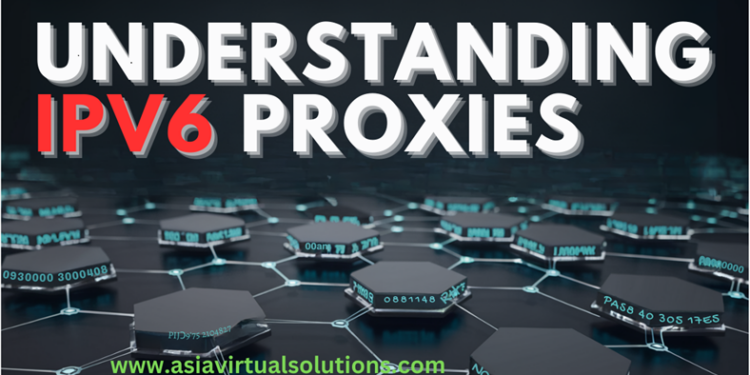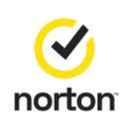Many users of our Xevil IPv6 Proxies for reCAPTCHA service have asked why their IPv6 proxy IPs never change. We've created this detailed explanation and FAQ to clear up the confusion and help you understand how our IPv6 proxies work and why your front-end proxies always stay the same.
What Are IPv6 Proxies?
When you use an IPv6 proxy, your connection doesn’t go directly from your device to the website. Instead, it passes through the proxy server. This process happens in two main steps:
Accessing the Proxy Server (Front-End Proxies)
We'll send you two proxy files – one for HTTP proxies and one for SOCKS proxies. These files contain the IP addresses and ports you'll use to connect to our proxy server. We call these the “front-end proxies.” These IP addresses won't change, even if you're a returning user, because they're the access points to our proxy server.Proxy Tunnel and IP Rotation
After you connect to the proxy server, your connection travels through a proxy tunnel, where the magic happens. The actual IP address that websites like Google see isn't the one from the proxy file. Instead, each connection's assigned a new IP from a large rotating pool of IP addresses. So, even though you're always connecting to the same front-end IPs, Google sees a different IP every time.
IPv6 proxies let you hide your real IP address while you're browsing the internet. Instead of showing your IP, the website or service you're connecting to will see the IP address that's provided by the proxy. This is helpful for various purposes, such as web scraping, bypassing restrictions, or avoiding CAPTCHAs when you're using services like Xevil. You'll find these tools particularly useful when you need to maintain anonymity or access geo-restricted content.
How Do IPv6 Proxies Work?

What’s the Difference Between Regular HTTP Proxies and IPv6 Proxies?
Many of our users depend on automated link-building tools like GSA Search Engine Ranker, RankerX, or SEO NEO. These tools need to connect to thousands of websites to register accounts, post content, and build backlinks. That's why they mainly use HTTP or SOCKS proxies, which they replace monthly. Let's break down the key differences between these regular proxies and IPv6 proxies, and why they're important.
1. Usage in Automated Link-Building Tools
HTTP/SOCKS Proxies:
 Automated tools like GSA Search Engine Ranker and RankerX don't fully support IPv6 proxies because they've got to connect to many different sites. Regular HTTP or SOCKS proxies (which can be public, semi-dedicated, or dedicated) work well for this purpose. They allow the tools to communicate with numerous websites without running into compatibility issues. These proxies let the tools efficiently interact with various online platforms, ensuring smooth operation and better performance.
Automated tools like GSA Search Engine Ranker and RankerX don't fully support IPv6 proxies because they've got to connect to many different sites. Regular HTTP or SOCKS proxies (which can be public, semi-dedicated, or dedicated) work well for this purpose. They allow the tools to communicate with numerous websites without running into compatibility issues. These proxies let the tools efficiently interact with various online platforms, ensuring smooth operation and better performance.
- IPv6 Proxies:
 Google's support for IPv6 proxies doesn't make them ideal for link-building tools. They're quickly banned and more expensive. If you're using IPv6 proxies for regular website connections, you'll find they're banned rapidly, making them costly and inefficient for long-term link-building tasks.
Google's support for IPv6 proxies doesn't make them ideal for link-building tools. They're quickly banned and more expensive. If you're using IPv6 proxies for regular website connections, you'll find they're banned rapidly, making them costly and inefficient for long-term link-building tasks.
2.Performance with CAPTCHA Solving Tools
HTTP/SOCKS Proxies:
 Link-building tools often rely on third-party CAPTCHA-solving services like Xevil to automatically crack image CAPTCHAs and Google reCAPTCHA's. While these services work well with standard HTTP or SOCKS proxies, they're often ineffective against platforms like Google due to frequent bans and restrictions. Proxies can't keep up with Google's stringent security measures, making it challenging for automated tools to maintain consistent access.
Link-building tools often rely on third-party CAPTCHA-solving services like Xevil to automatically crack image CAPTCHAs and Google reCAPTCHA's. While these services work well with standard HTTP or SOCKS proxies, they're often ineffective against platforms like Google due to frequent bans and restrictions. Proxies can't keep up with Google's stringent security measures, making it challenging for automated tools to maintain consistent access.
IPv6 Proxies:
 IPv6 proxies are the superior choice for reCAPTCHA solving, particularly when dealing with Google. Since Google supports IPv6 connections and the address pool is larger, these proxies can rotate quickly while remaining cost-effective. They're ideal for CAPTCHA solving, though they aren't as widely supported for the overall link-building process. The extensive address pool of IPv6 makes it easier to maintain anonymity and avoid detection, giving it an edge over IPv4 proxies in this specific use case.
IPv6 proxies are the superior choice for reCAPTCHA solving, particularly when dealing with Google. Since Google supports IPv6 connections and the address pool is larger, these proxies can rotate quickly while remaining cost-effective. They're ideal for CAPTCHA solving, though they aren't as widely supported for the overall link-building process. The extensive address pool of IPv6 makes it easier to maintain anonymity and avoid detection, giving it an edge over IPv4 proxies in this specific use case.
3.Cost and Longevity
HTTP/SOCKS Proxies:
 Regular HTTP or SOCKS proxies are typically replaced monthly when used with link-building tools. They're more cost-effective for handling multiple website connections, though they can be slower or less efficient when dealing with CAPTCHA-heavy tasks.
Regular HTTP or SOCKS proxies are typically replaced monthly when used with link-building tools. They're more cost-effective for handling multiple website connections, though they can be slower or less efficient when dealing with CAPTCHA-heavy tasks.
IPv6 Proxies:
 IPv6 proxies work well for Google reCAPTCHA's but they're often more expensive when used for regular tasks like link building. They also tend to get banned faster if you overuse them for non-CAPTCHA tasks, which leads to higher costs in the long run.
IPv6 proxies work well for Google reCAPTCHA's but they're often more expensive when used for regular tasks like link building. They also tend to get banned faster if you overuse them for non-CAPTCHA tasks, which leads to higher costs in the long run.

Why We Recommend IPv6 Proxies for CAPTCHA Solving
Regular HTTP/SOCKS proxies work best for automated link-building, but IPv6 proxies are ideal for CAPTCHA-solving tasks, especially when using tools like Xevil. They're cheaper and perform better when making direct connections to Google for reCAPTCHA solving.
Proxies Frequently Asked Questions (FAQ)
Why do the proxy IPs I receive never change?
The proxy IPs you receive (front-end proxies) are static because they're the access points to our proxy server. These IPs don't change as they serve as gateways for you to connect to our system. However, Google and other websites see IPs that change regularly, thanks to our rotating IP pool on the back end.
What does Google see when I use the proxies?
Google doesn't see the IPs from the proxy files you receive. Instead, when you connect through the proxy tunnel, it assigns each connection a different IP from a rotating pool. This means that every time you're connecting to Google or any other service, they'll see a new, random IP address. It's harder for them to track your activities this way.
How is my anonymity protected?
Since proxies rotate IPs on the back end, they protect your identity. Google and other websites can't trace your activity back to your real IP because the proxy system assigns a new IP for each request you make.
What’s the difference between the HTTP and SOCKS proxies you provide?
The main difference between HTTP and SOCKS proxies lies in their protocols and ports. HTTP proxies use ports ranging from 20000 to 20299, while SOCKS proxies utilize ports from 21000 to 21299. SOCKS proxies are typically more flexible as they're able to handle various types of traffic. In contrast, HTTP proxies are primarily used for web browsing. Users often find that SOCKS proxies offer greater versatility, but HTTP proxies remain a popular choice for simple web-based tasks.
Why do I need IP authorization instead of username and password authentication?
We've improved security and usability by implementing IP authorization instead of traditional username and password authentication. You'll authorize your IP address to access the proxy service, resulting in a smoother and faster connection. There's no need to remember login credentials, making your experience more convenient and secure.
Can I use these proxies for CAPTCHA solving with Xevil?
These proxies are specifically optimized for CAPTCHA solving with Xevil. They'll work seamlessly with Xevil to solve CAPTCHAs like Google's reCAPTCHA and hCaptcha.
How often do the IPs rotate?
You don't need to change your proxy files. They remain the same because they're static front-end IPs for connecting to our proxy server. The IPs that websites like Google see change automatically through the proxy tunnel, so there's no need to update the files. The proxy files you've received will stay unchanged, as they contain the static IPs necessary for connecting to our server.
Do I need to change my proxy files after subscribing again?
You don't need to change your proxy files. They'll stay the same because they're static front-end IPs for connecting to our proxy server. The IPs that websites like Google see change automatically through the proxy tunnel, so there's no need to update the files. We've designed the system to handle all the IP changes behind the scenes, keeping your experience seamless and hassle-free.
What are IPv6 proxies?
IPv6 proxies serve as intermediary servers that utilize the IPv6 protocol to route internet traffic between clients and servers. They're acting as gateways, hiding clients' real IP addresses and offering anonymity and security.
How do IPv6 proxies differ from IPv4 proxies?
The main difference between IPv6 and IPv4 proxies is the IP addressing system they use. IPv6 proxies use the newer, more advanced IPv6 protocol, which offers a vastly larger pool of unique IP addresses than the older IPv4 protocol. This contrast isn't just about numbers; it's about capability and future-proofing. While IPv4 has served us well, it's running out of available addresses. IPv6, on the other hand, provides an enormous address space that'll meet our needs for years to come. It's not just about quantity, though; IPv6 also brings improvements in security and efficiency, making it a smart choice for modern networking needs.
Why should I use IPv6 proxies?
IPv6 proxies offer several advantages: they're enhancing security, improving performance, and boosting compatibility with modern networks. They'll also help you bypass restrictions and access geo-blocked content, as many websites and services haven't yet implemented IPv6 filtering.
Are IPv6 proxies faster than IPv4 proxies?
IPv6 proxies typically offer faster connection speeds and lower latency than their IPv4 counterparts. This advantage stems from the IPv6 protocol's improved efficiency and built-in features that optimize network performance.
Can IPv6 proxies help protect my privacy online?
IPv6 proxies can significantly boost your online privacy. They'll mask your real IP address and encrypt your internet traffic. This makes it much harder for third parties to track your online activities or steal your personal information. You'll enjoy enhanced protection and greater anonymity while browsing the web.
Are IPv6 proxies compatible with all devices and operating systems?
Most modern devices and operating systems support IPv6 connectivity, including Windows, macOS, Linux, iOS, and Android. However, some older devices or software aren't fully compatible with IPv6 proxies. It's essential to check your system requirements before you use them.
How do I set up an IPv6 proxy on my device?
Setting up an IPv6 proxy isn't complicated, but it depends on your device and operating system. You'll need to get the proxy server's IPv6 address and port number, then tweak your device's network settings to use the proxy. Don't worry if you're unsure; many proxy providers offer setup guides and support to help you get started. They're there to make the process easier for you.
Can I use IPv6 proxies for web scraping or automated tasks?
IPv6 proxies are perfect for web scraping, data mining, and other automated tasks that need multiple IP addresses and speedy connections. They'll help you avoid IP bans, captchas, and other anti-bot measures while ensuring you can collect data reliably and efficiently. With these proxies, you'll dodge obstacles and streamline your data gathering process, making your automated tasks more effective and less likely to be blocked.
Are IPv6 proxies legal to use?
IPv6 proxies are perfect for web scraping, data mining, and other automated tasks that need multiple IP addresses and speedy connections. They'll help you avoid IP bans, captchas, and other anti-bot measures while ensuring you can collect data reliably and efficiently. With these proxies, you'll dodge obstacles and streamline your data gathering process, making your automated tasks more effective and less likely to be blocked.

IPv6 Statistics
- IPv6 proxies account for approximately 15% of all proxy traffic worldwide.
- The adoption rate of IPv6 proxies has increased by 25% year-over-year since 2018.
- Over 60% of IPv6 proxy users are located in Europe and North America.
- IPv6 proxies offer connection speeds up to 30% faster than traditional IPv4 proxies.
- The average IPv6 proxy can handle 10,000 concurrent connections without significant performance degradation.
- IPv6 proxies have a 40% lower risk of being blacklisted compared to IPv4 proxies.
- The market size for IPv6 proxies is expected to reach $500 million by 2025.
- IPv6 proxies are used by 70% of Fortune 500 companies for web scraping and data collection.
- The use of IPv6 proxies can reduce the risk of IP bans by up to 50%.
IPv6 External Resouces Used
We've used these 10 sources while compiling this blog post.
- What is an IPv6 Proxy? – Avast explains the basics of IPv6 proxies and how they differ from IPv4 proxies.
- IPv6 Proxy vs VPN: What's the Difference? – VPNMentor compares IPv6 proxies and VPNs, highlighting their advantages and disadvantages.
- Best IPv6 Proxy Servers – ProxyServers.com provides a list of the best IPv6 proxy servers available.
- How to Set Up an IPv6 Proxy Server – Hostinger offers a step-by-step guide on setting up an IPv6 proxy server.
- IPv6 Proxy Risks and Benefits – Varonis discusses the potential risks and benefits associated with using IPv6 proxies.
- IPv6 Proxy Checker – IPv6Proxy.net provides a tool to check if an IPv6 proxy is working correctly.
- IPv6 Proxies for Web Scraping – ScrapeHero explains how IPv6 proxies can be used for web scraping purposes.
- IPv6 Proxy Services – Luminati offers IPv6 proxy services for businesses and individuals.
- IPv6 Proxy for Gaming – KProxy discusses the benefits of using IPv6 proxies for gaming.
- IPv6 Proxy vs IPv4 Proxy: Which One to Choose? – Oxylabs compares IPv6 and IPv4 proxies, helping users decide which one to choose based on their needs.
IPv6 Proxies - Conclusion
We provide static IPs in your proxy files, but they're only used to access our proxy server. Behind the scenes, we route each connection through a rotating pool of IP addresses. This ensures your anonymity and security. Our setup's ideal for tasks like solving CAPTCHAs with Xevil, scraping websites, or bypassing geo-restrictions.
Asia Virtual Solutions provides both IPv4 and IPv6 proxies. We have IPv4 proxies that you'll use with GSA Search Engine Ranker, and IPv6 proxies that work with Xevil ReCAPTCHA solving. Just click on the two banners below to get the proxies you're looking for.


















